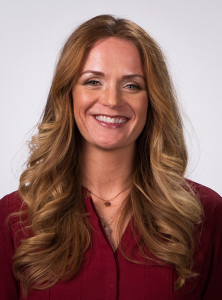Overcoming the Dyslexia Paradox

A specialist who is also a parent of a child with dyslexia explains the keys to understanding and supporting students like her son.
By Shantell Thaxton Berrett
When the diagnosis of dyslexia—and later dysgraphia—came to light with my son, I felt overwhelmed and afraid. I was unsure of how to help him, or the best direction to go to find that help. I couldn’t bear the thought of my child struggling and not knowing how to help him. As parents, we very quickly ask ourselves, “Did I do something wrong? Did I not do enough?” In retrospect, asking those questions just compounds the problem and is not an effective use of time.
Sadly, my experience is not uncommon. One in five students has a language-based learning disability, the most common of which is dyslexia. This is a rapidly changing time for dyslexia legislation, and many schools are in the process of transforming the type and level of support they offer to these students. Knowing that there are millions of parents out there struggling through the same experience, I’ve made dyslexia awareness my personal mission and have committed my career to helping children, just like mine, get the help they need to find success.
Dyslexia as a Language Disability
In 2015, the Office of Special Education and Rehabilitative Services created a policy identifying dyslexia, dysgraphia, and dyscalculia as a specific language disability. This was huge. Today, 39 states have statewide dyslexia laws, and many others have handbooks or resource guides. Although schools are taking steps to help dyslexic students, change doesn’t happen overnight. State mandates, unfortunately, are not always funded, which makes it difficult for schools to obtain the resources they need to help this group of students.
The good news is that some new laws come with funding for certain specialists. In the past, if teachers wanted to seek dyslexia certification, they would have had to find their own funding. With the recognition of dyslexia as a language disability, more schools are providing professional development through short seminars.
The Dyslexia Paradox
In 2000, the National Reading Panel established five core components for literacy instruction. Many mainstream classrooms and schools are trying to follow these, but are using phonics instruction that is more implicit, or part of a core reading program that addresses it more incidentally, or is not necessarily aligned with scientifically based reading research. Phonics instruction needs to be explicit, systematic, and sequential. Schools may think they are covering phonics, but are not aware that the way the phonics is instructed is what determines the level of success for students, particularly those with processing deficits such as dyslexia. Because of this, students are still at risk of not developing core language and literacy skills and falling behind as they move up grade levels.
It’s called the dyslexia paradox. Students with dyslexia are often not identified until they are older and are not offered proper services and intervention until someone notices there’s a real deficiency, which often happens after the ideal time for intervention (kindergarten and 1st grade) has passed. There’s a very strong connection between pre-literacy skills and reading skills, like emergent literacy skills, phonological processing, alphabetic knowledge, print concepts, rapid automatized naming, and language skills. These skills should be assessed when students are in kindergarten and 1st grade during an early screening assessment, which is part of the mandates that some schools are working to implement.
The screening results provide schools the information they need to identify gaps in phonological awareness and decoding, allowing districts to identify what type of intervention will be the most effective to help the student succeed. Dyslexia support should be a balance of intervention and effective instruction, but also accommodations such as longer time on tests, not being penalized for spelling, and having test questions read out loud.
Searching for ‘the Right Answer’
One resource that has been extremely helpful for administrators is the Knowledge and Practice Standards for Teachers of Reading created by the International Dyslexia Association. It’s a very specific guideline for K–3 educators, providing a standard of what students need to know and how teachers can support them. The research shows a high correlation between teachers’ knowledge and students’ outcomes, which should be a huge motivator for districts to provide sufficient professional development to all educators.
Providing Support to Educators
I mentioned earlier how I’ve committed my career to helping students with dyslexia succeed. After my child was diagnosed, I recognized my own need for more knowledge and understanding to better help those individuals with dyslexia, which led to me completing my MA in education for reading science, as well as earning a dyslexia certification. I now serve as the dyslexia specialist for Reading Horizons. For teachers to support dyslexic students, they need in-depth professional development on teaching core reading skills including phonological awareness, decoding, an understanding of structured language, and literacy in general.
To provide the in-depth professional development that teachers need, we created new online training modules that are spread out over an entire year. The online modules provide flexibility so educators can complete the courses on their own time and deepen their knowledge around general literacy and research to support students with dyslexia.
As a literacy expert and a parent, what I found to be most successful to help my child succeed is a solid relationship with the school, and learning as much as I possibly could about the language disability. Knowledge is key to knowing what to advocate for, because support for dyslexic students should be a balance of intervention and effective instruction, but also accommodations. Knowing that there are support, resources, and new mandates for students with dyslexia and other language disabilities gives me hope that change within the educational system is possible.
Shantell Thaxton Berrett is the lead professional development and dyslexia specialist for Reading Horizons. She has a B.A. in English teaching and an M.A. in education with a reading science concentration and dyslexia certification. She is trained in LETRS, CERI, and both basic and advanced training/certification in Orton-Gillingham. She is a featured speaker at dyslexia conferences, sharing effective reading strategies for every learner. She is passionate about raising awareness about the importance of effective reading instruction for every student, especially for individuals with dyslexia.






